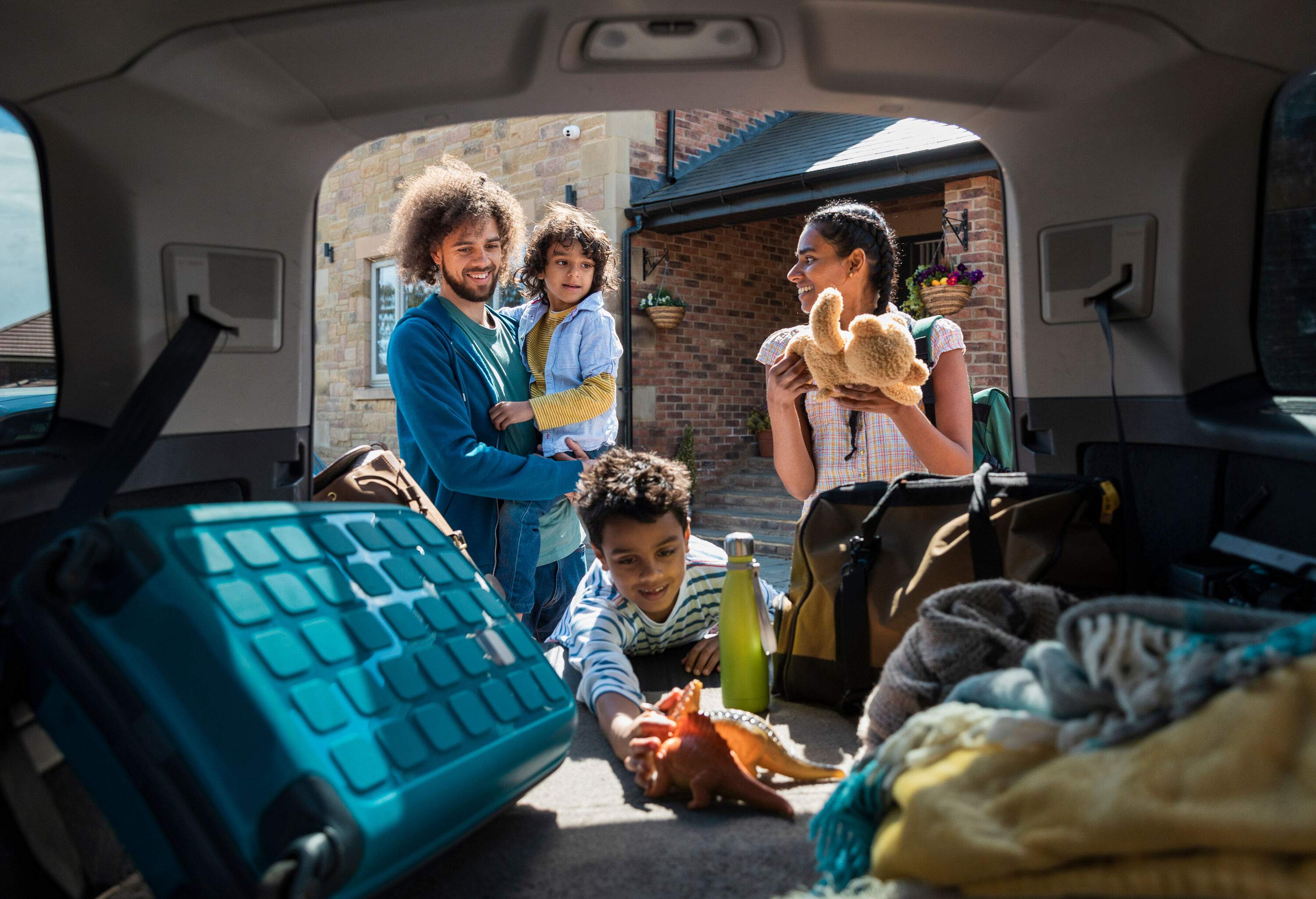Driving is embedded into American culture, which is why road-tripping is so popular across the U.S. Whether you’re looking to visit cities for history and culture or national parks for access to the great outdoors, a road trip can take you there. If you’re not sure where to start, here’s how to plan a road trip.
How do you plan a road trip for beginners?
If you’ve never planned a road trip before, there are a few things you’ll want to discuss with your travel companions before you start crafting a turn-by-turn itinerary. Start with where you want to go. We’re talking big picture, like a region or a state, not every single stop along the way (we’ll offer tips for how to plan a road trip with stops later on). Then think about how long you want to go for. And finally, consider your budget. Once you nail down those three things, you can start looking at the details.
When is the best time to start planning a road trip?

The earlier the better! Planning a road trip can take quite a bit of time and effort, so allowing yourself at least a few weeks to put together a full itinerary is a good idea. You’ll also want to leave enough time between planning and departure to get your car checked out by a mechanic. No one wants to break down on the road!
And if you’re renting a car instead of driving your own, you’ll want to book your rental car in advance to ensure there’s inventory (say, the right type of rental car available).
How many days should you plan for a road trip
The duration of your road trip is entirely up to you. The two important things to consider are where you want to go and what you want to do along the way. If you’re looking for recommendations for how to plan a cross-country road trip, give yourself at least two weeks if you want to make a few sightseeing stops. If you want to take the trip at a more leisurely pace and spend more time sightseeing than driving, four weeks is more reasonable. Regional road trips, however, can be as short as a few days. Or you could really take your time and stretch them out over a week or more.
How to determine the best itinerary to take
Choosing a road trip itinerary largely depends on your personal preferences, but in all cases, you should start by thinking about where you want to go, considering who you’ll be traveling with. If you’re planning a family road trip, that might take you to different destinations than if you were traveling with a group of friends or by yourself.
Once you have your general destination in mind, whether that’s a region or a state or a full cross-country journey, you’ll want to start selecting points of interest within that region. Plot these points on a map, then connect the dots! This is a good starting point for route planning, but now comes the laborious part: checking drive times between those points. It’ll take a bit of finagling to create an itinerary that works in your favor.
As you’re planning your road trip itinerary, you’ll also need to consider your overnight locations. Some remote destinations might not have accommodations at all, and more popular accommodations may book up months in advance.
How to choose when to take a road trip
You should always consider seasonality for road trips. When you pick a destination, look at the typical weather for each season. In general, it’s usually wise to avoid snowy destinations in the winter (some roads close seasonally) and extremely hot destinations in the summer (extreme heat can affect your car).
How to plan a road trip on a budget
You can do a road trip on any budget, but no road trip will be free. You always need to consider the cost of gas and food. One way to save money, however, is on accommodations. Hotels are often more expensive than campsites, but campsites frequently book up in advance, particularly in the summer.
What is an appropriate/realistic driving time for each section of the trip?

If you have more than one driver, you could take shifts and have a longer driving time each day. But an individual driver should typically not drive more than six to eight hours in one day. More experienced drivers, however, might have a higher limit of say, 10 to 12 hours. Drowsy driving is extremely dangerous, though, so make sure the drivers are well rested before each segment, and take breaks every 2 hours.
Every road tripper has their preference of apps, but these are tried-and-true favorites.
What are the essentials to buy and pack?
Here’s a quick and easy packing list for a road trip.
What are the main steps in the road trip planning process?

2 months before departure: Start looking at the points of interest you want to visit, consider the duration of your road trip, and determine your budget
1 month before departure: Get your car checked out or rent the relevant car for your itinerary and book your accommodations
2 weeks before departure: Buy the essential items
1 week before departure: Do a “test” pack to ensure everything fits in your car, or in your luggages if you are planning a road trip abroad
Conclusion
A road trip is an ideal way to see a destination, but it takes some careful planning to ensure you have a safe and enjoyable trip. While planning is important, always leave spare time in your itinerary. You never know what you might discover along the way!





